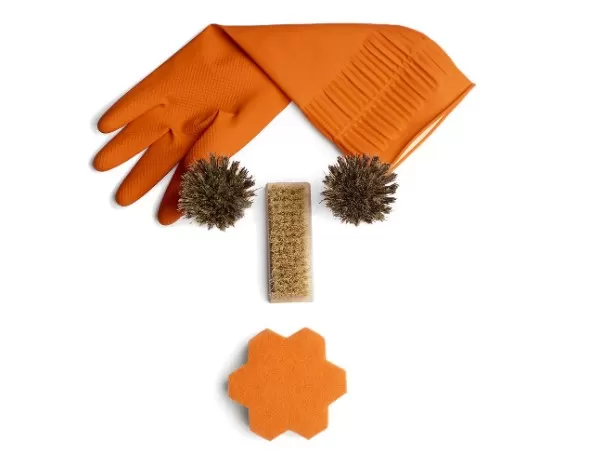Custom cleaning routine: Optimize Based on Your Personality. A cleaning routine can be a lifesaver for those seeking to maintain a well-kept home. However, it’s essential to recognize that chore charts and schedules don’t fit everyone’s preferences.
Different individuals have unique approaches to cleaning, from devoting several hours once a week to clean the entire home to tackling a single room each day or responding to stress triggers when it comes to tidying up a space.
The Happiness Factor: A Clean, Healthy Home for All

The mental health benefits of maintaining a tidy living space are universal, regardless of our individual personality types.
A clean home tends to be a happier one, as clutter and mess can trigger anxiety and stress. Dr.
Stephanie Albers-Bowling explains that walking into a messy room can overwhelm our brains, which instinctively try to organize and make sense of the environment. In contrast, an organized space allows our brains to relax and find ease.
Disorganized individuals often experience higher stress levels and lower productivity, while housemates or partners with different clutter tolerance levels may find themselves in regular conflicts.
In addition to the physical health advantages of keeping a home free from allergens, mold, and dirt, the act of cleaning itself can provide an instant mood boost. Dr.
Albers-Bowling reveals that every hour of cleaning is associated with a significant increase in overall happiness, as cleaning involves movement and exercise comparable to going for a walk or riding a bike.
Consider your external environment as a reflection of your internal state.
Taking control of your environment through cleaning can have a positive impact on your well-being. If you’re feeling stressed or anxious, starting with organizing and cleaning can be a powerful step towards achieving a sense of calm and balance.
Ultimately, a clean and healthy home contributes to a happier and more peaceful life for everyone residing in it.
Customizing Your Cleaning Plan: Embracing Your Personality Type
While most people appreciate the benefits of a clean and organized home, the cleaning process itself may not be enjoyable for everyone.
Whether you have specific tasks you dread or find the entire cleaning routine daunting, customizing your cleaning plan based on your personality can make the experience more manageable. By aligning your activity level and cleaning style with your personality, you can reduce stress and anxiety associated with cleaning chores.
Therapist KC Davis emphasizes the importance of creating a cleaning routine that suits your schedule and mindset.
Rather than adopting someone else’s routine, she encourages individuals to personalize their approach. Recognize that a routine designed for a stay-at-home parent may not be suitable for someone who works outside the home.
It’s essential to start slowly and be curious about what works best for your body, mind, and lifestyle.
There is no shame in finding that a particular routine doesn’t work for you.
The key is to embrace a customized approach and discover what brings you the most comfort and efficiency. By taking into account your personality type, you can set up a cleaning strategy that works harmoniously with your preferences and reduces any negative feelings associated with cleaning tasks.
Embracing Cleaning Rhythms: Flexibility and Personal Ritual

Therapist KC Davis introduces an alternative perspective on cleaning by framing it as a rhythm rather than a rigid routine.
Unlike routines that may feel demanding and inflexible, a cleaning rhythm allows for greater flexibility. If you miss a few days, it’s not a big deal.
You can easily get back into the rhythm when it feels right for you.
Davis also incorporates “rituals” as she approaches each space.
For example, her ritual for resetting living spaces involves picking up trash, laundry, dishes, items with designated places, and items without a designated place. This ritual serves as a reliable foundation, one that she returns to whenever needed, without feeling obligated to perform it every day.
Evening kitchen rituals may include tasks such as taking out the trash, loading and unloading the dishwasher, clearing the island counter, and preparing for the next morning’s coffee brew.
The frequency of performing these rituals can vary based on different seasons of life—some days it may be done daily, while in other seasons, every three days suffices. Davis emphasizes that it’s acceptable for things to change.
There is no failure in adjusting a cleaning routine—it is merely a tool to support your well-being.
Finding Your Fit: Matching Your Personality Type to the Right Cleaning Routine
Personality traits, such as openness, conscientiousness, extroversion, agreeableness, and neuroticism, play a significant role in shaping behavior patterns and mindsets.
Each individual falls somewhere on a spectrum for each trait, and recognizing the prevalent traits in your own personality can guide you in making choices and developing habits that feel natural and effortless. This applies to various aspects of life, including designing a morning routine, selecting hobbies, and creating a cleaning routine that suits your personality type. (Discover your personality type here. ).
Understanding your personality type can help you tailor your cleaning routine to your preferences and needs.
For example, individuals high in conscientiousness may prefer structured and detailed cleaning plans, while those who lean towards openness may appreciate more flexibility and creativity in their cleaning approach. Extroverted individuals might find cleaning tasks more enjoyable when performed with others or accompanied by upbeat music, while introverts may prefer solitude and a calm atmosphere while tidying up.
Agreeable individuals may prioritize maintaining a clean and harmonious living space for themselves and others, while those who exhibit higher levels of neuroticism may place more importance on deep cleaning and eliminating potential sources of anxiety.
Embracing Openness: Adding Creativity and Flexibility to Your Cleaning Routine

If you score high in openness on the personality scale, incorporating creativity and flexibility into your cleaning routine will enhance your overall experience.
According to Dr. Stephanie Albers-Bowling, you may find joy in switching up your cleaning tasks or introducing new elements to your routine.
Consider color-coding your chore chart or curating a custom playlist or podcast to accompany your cleaning session. Embrace the opportunity to infuse creativity and imagination into your cleaning experience.
As someone who values new experiences, you may enjoy the challenge of reversing your task list or approaching cleaning in a different order each time.
Keeping your cleaning routine interesting and diverse is key. Unlike individuals who thrive on strict schedules, you are more likely to find cleaning easier and more enjoyable when it becomes an experiential process rather than a mundane chore.
However, if you currently lack a dedicated cleaning time, establishing a regular schedule can be beneficial.
While clutter may not bother you as much as others, waiting until a cleaning crisis emerges can lead to unnecessary stress. A schedule helps prevent reaching that point and ensures a more consistent cleaning routine.
Harnessing Conscientiousness: Structuring and Organizing Your Cleaning Routine

If you score high in conscientiousness, organization, productivity, and maintaining a structured approach are key drivers for you.
You thrive on creating to-do lists and take pride in checking off tasks promptly. Dr.
Stephanie Albers-Bowling highlights the importance of a tight schedule and systematic approach for individuals with high conscientiousness.
While you may already have a natural inclination towards cleanliness and orderliness, incorporating structure into your cleaning routine can further enhance your productivity.
Alongside regular cleaning tasks, prioritize organizing books, drawers, and closets to align with your conscientious nature. Devote specific days to tackle significant cleaning activities such as sweeping floors and changing beds, while designating separate days for focused organization.
Setting time limits for each task helps prevent feeling overwhelmed and ensures efficient progress.
By implementing a structured approach and dedicating time to both cleaning and organizing, you can satisfy your conscientiousness while maintaining a clean and well-organized living space.
Embrace your love for order and productivity, and let it guide you in developing an effective cleaning routine that suits your conscientious personality.
*The information is for reference only.